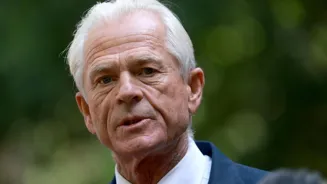White House trade adviser Peter Navarro issued a pointed critique of India’s continued reliance on Russian oil, saying the purchases undermine efforts
to pressure Moscow over the Ukraine conflict. Navarro stated, “India’s purchases of Russian crude are funding Moscow’s war in Ukraine and has to stop,” further suggesting that New Delhi’s deepening ties with both Russia and China could complicate its relationship with Washington. He added, “If India wants to be treated as a strategic partner of the US, it needs to start acting like one,” highlighting that the current trajectory makes it “risky for American companies to transfer cutting-edge military capabilities to India.”
India’s Position
India has consistently defended its Russian crude imports, citing energy security and price stability for its vast domestic market. Officials in New Delhi argue that discounted Russian oil helps cushion inflationary pressures, making it essential for sustaining growth in Asia’s third-largest economy.According to data from the Petroleum Planning and Analysis Cell (PPAC), Russia has emerged as India’s largest supplier of crude in recent years, accounting for over 30 per cent of total imports in 2024.
Strategic Implications
Navarro’s comments come at a time when Washington is seeking deeper strategic and defence cooperation with India, including technology transfers in semiconductors, defence manufacturing and clean energy. However, American policymakers remain wary of India’s balancing act between Western alliances and long-standing ties with Moscow.Energy analysts note that reducing dependence on Russian crude in the near term could be challenging for India, given its rapidly growing demand and limited alternative suppliers willing to offer similar discounts.
The sharp remarks by Peter Navarro underline the growing tension in US–India relations over energy policy. While Washington sees Russian oil purchases as a geopolitical liability, New Delhi views them as an economic necessity. The challenge ahead will be whether both sides can strike a balance between strategic alignment and domestic compulsions.














